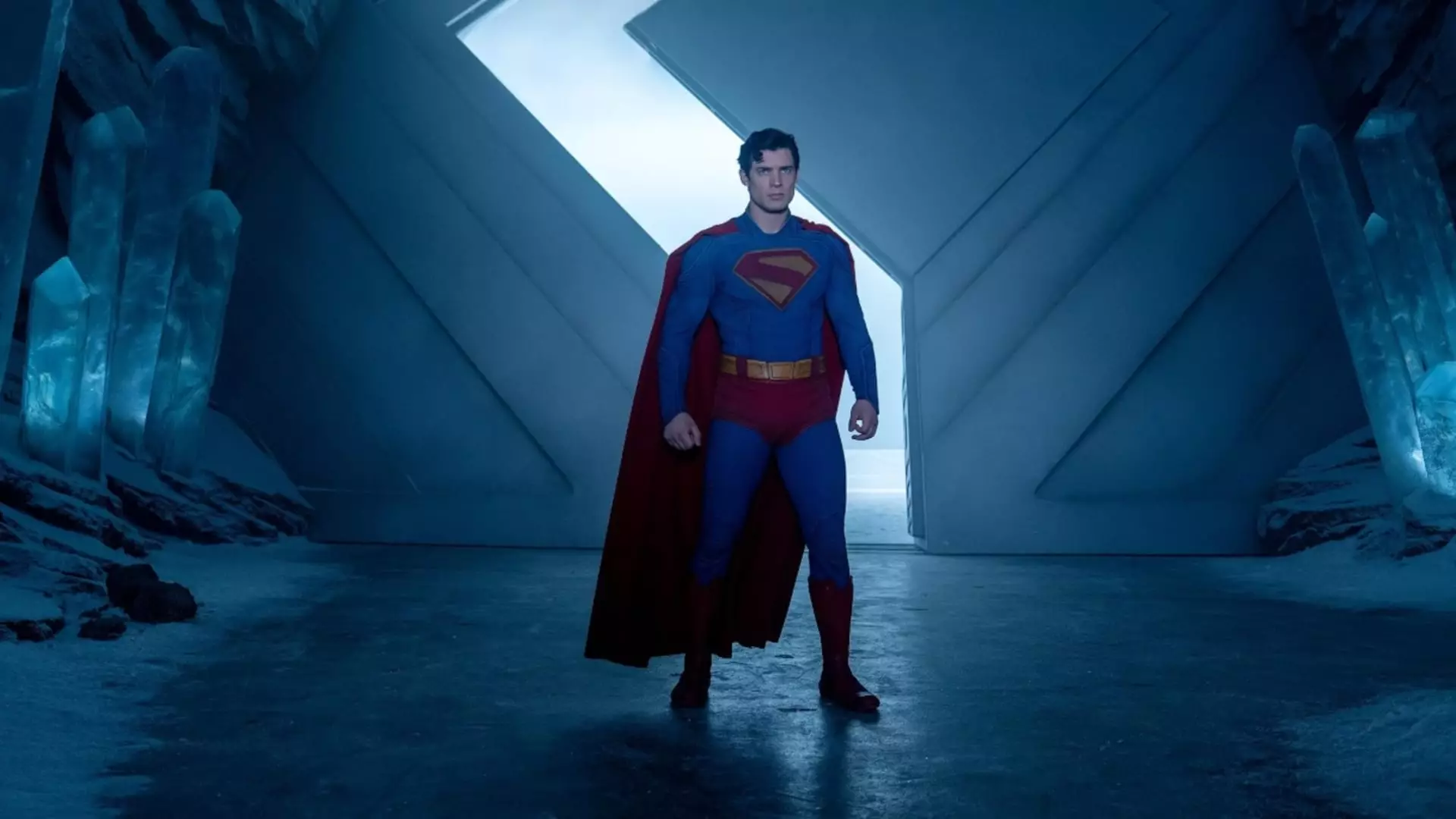Rebooting a beloved superhero like Superman is no small feat in an era saturated with comic book adaptations and franchise-building movies. The recent performance of Warner Bros.’ new “Superman” film signals more than just box office numbers; it becomes a litmus test for the evolving landscape of superhero cinema and DC’s future viability. With preview earnings hitting $22.5 million—surpassing the previews of previous Superman installments—the film seems to be edging toward a promising start. However, these initial figures should be viewed with a healthy dose of skepticism, especially given the high expectations from fans and critics alike.
For decades, Superman has stood as an iconic figure in American culture, embodying idealism and hope. But in a world increasingly jaded by superficial blockbusters and franchise fatigue, revisiting Superman’s story with fresh eyes offers an opportunity to inject genuine meaning back into superhero narratives. Notably, the film’s promising previews suggest a careful attempt to balance nostalgia and modern storytelling without succumbing to the pitfalls of formulaic filmmaking. Yet, all this buzz masks the underlying anxiety about whether the reboot can truly resonate in a climate where audience tastes have shifted and the market is ruthlessly competitive.
The Commercial and Cultural Pressure on a Reboot
Warner Bros. and the film’s creators are walking a tightrope. On one side lies the necessity of delivering box office gold, with projections aiming for $130–$140 million over the opening weekend—a challenging feat but essential to counterbalance the considerable costs of rebooting such an enduring character. The anticipation is high: the film’s performance could either bolster the new era under James Gunn and Peter Safran or serve as a stark reminder of how difficult it is to revitalize a franchise mired in mixed reviews and waning public interest.
The stakes are compounded by the cultural significance of Superman. This character carries not only a hefty cinematic legacy but also an ideological one; he symbolizes hope, justice, and the American ideal. Yet, over the years, various adaptations have struggled to meet the nuances of contemporary societal perspectives. Fans now demand more complexity, diversity, and depth—elements that traditional superhero origins sometimes lack. The challenge for Gunn and Safran is to honor Superman’s core while innovating enough to avoid predictable storytelling.
In the broader context, this reboot is as much about marketing and cultural relevance as it is about storytelling. It’s about proving to a skeptical audience that the superhero genre can evolve without losing its essence. It’s about striking a delicate balance—refreshing Superman’s mythos without alienating core fans or appearing out-of-touch. Success in this arena hinges on creative integrity and strategic execution, not just flashy visuals or nostalgic callbacks.
The Future of DC and the Role of Leadership
The arrival of Gunn and Safran at the helm of DC Studios was widely seen as a pivotal turning point. Their prior successes with Marvel and DC projects demonstrated an understanding of how to craft engaging, character-driven stories. The fact that “Superman” is the first theatrical project under their guidance hints at their ambitious plan to reassert DC’s dominance in the superhero genre. Their ten-year vision aims to diversify and deepen the franchise’s offerings—something desperately needed if DC wants to stand apart from its competitors.
Critics have responded cautiously optimistic; the film’s Rotten Tomatoes score of 83% underscores a generally positive reception, hinting that the new direction might be on the right track. Yet, critic approval does not automatically translate to box office longevity or enduring cultural impact. The true test lies in sustained audience engagement and the ability to foster a sense of authenticity within the superhero narratives.
What remains to be seen is whether Gunn and Safran can transform DC’s identity into something more thematically hopeful yet meaningful—an environment where heroes reflect the complexities of today’s society without losing their mythic appeal. If the initial numbers and critical reception are any indication, they are heading in the right direction, but their real challenge begins now: maintaining momentum and delivering stories that genuinely resonate with both longtime fans and new audiences.

